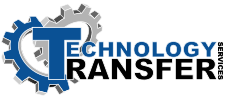 TTS conducts job/task analyses for multiple job positions across many industries, specializing in the maintenance and operations fields. A job/task analysis is a study that identifies the skill and knowledge requirements needed by employees to perform their jobs. This systematic process documents the entire job in compliance with professional and legal guidelines.
TTS conducts job/task analyses for multiple job positions across many industries, specializing in the maintenance and operations fields. A job/task analysis is a study that identifies the skill and knowledge requirements needed by employees to perform their jobs. This systematic process documents the entire job in compliance with professional and legal guidelines.
Why do a job/task analysis?
In today’s competitive world of employment, a job/task analysis should be the first step in every major human resources effort. A job/task analysis provides the objective criteria management needs to make informed decisions regarding selection/ hiring, job performance, and compensation. In today’s litigious society, a job/task analysis helps companies develop a selection system that is valid and legally defensible under EEOC laws.
What’s in it for me?
Conducting a job/task analysis is important because companies are being asked to work more with less. In addition to determining the critical tasks of a job, it is crucial to identify the desired knowledge, skills, and abilities of an employee. Job/task analysis serves as the foundation for selecting the right people into your organization. A job/task analysis allows companies to not only create better hiring systems, but also develop effective training programs. If an organization’s hiring/promotion practice is challenged legally, the court will look to see if a job/task analysis was done properly, and if the selection system is, in fact, job-relevant.
What type of information is produced?
The job analysis information gathered summarizes the primary tasks and duties of a job, as well as the knowledge, skills, and abilities required to perform those tasks. It can also include information about the context in which the work is performed, such as work equipment, materials, and working relationships with others.
Who should be included?
Employees in the position being analyzed participate in the job/task analysis since they know the job better than anyone. You can include management, supervisors, and anyone who has critical knowledge about the job. In addition, include those who understand the training and development function.
How much time will it take?
TTS uses a seven-step approach to perform a functional job/task analysis. We meet with your chosen team for 3-4 days, depending on the position being studied. If you decide you need our job analysis services, we’d be glad to discuss the scope of work and deliverables in more detail.
How does this process ensure standardization and legal compliance?
TTS performs functional job/task analysis that comply with the EEOC’s Uniform Guidelines on Employee Selection Procedures (1978). TTS provides valid JTA’s that identify the specific skills and knowledge requirements that are necessary prerequisites for observable aspects of work behavior on the job.
How can I use the job analysis information?
- Recruitment/Selection: Job analysis provides information about what the job entails and what human characteristics are required to perform it. This information is used to form job descriptions that help management decide the best people they need to recruit and hire.
- Compensation: Job/task analysis information is crucial for estimating the right compensation, which usually depends on the job’s required skill and education- factors that are assessed through job analysis.
- Performance Appraisal: A performance appraisal compares an employee’s actual performance with company standards. Managers use a job analysis to determine the job’s specific activities and performance standards.
- Training Programs: The job description should show the activities and skills, and the training, that the job requires.
- EEO Compliance: The Uniform Guidelines on Employee Selection stipulate that job analysis is a necessary step in validating all major personnel activities. Employers must be able to show that their selection criteria and job performance are related, which requires knowing what the job entails, which in turn, requires a documented job/task analysis study.

